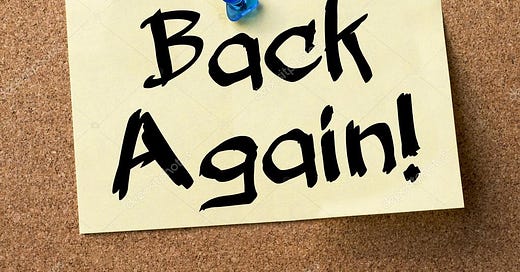Restoration... Again
Reflecting on The Reign of Christ: Three Days after Sunday (Year C)
Scripture (semicontinuous)
Psalter: Psalm 117
Old Testament: Jeremiah 31:1-6
Gospel: Luke 1:1-4
Scripture (complementary)
Psalter: Psalm 24
Old Testament: Isaiah 60:8-16
Gospel: Luke 1:1-4
___
Prayer
As the shepherd who cares for the flock, O God, you guide all things through Jesus whom you have exalted over all creation as king. Hear the prayers we offer in his …
Keep reading with a 7-day free trial
Subscribe to Faith Seeking Understanding to keep reading this post and get 7 days of free access to the full post archives.




